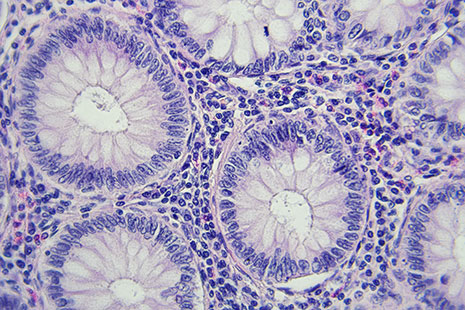Boston Scientific accounts are for healthcare professionals only.
Colorectal Cancer
If you or someone you know has been diagnosed with colorectal cancer or you are looking for prevention information, here is an overview of risk factors and screenings available.
What is Colorectal Cancer?
Colorectal cancer occurs in the colon, rectum or both. Colon cancer and rectal cancer have many features in common including starting as a growth or polyp on the inner lining of the colon or rectum.
Risk Factors
Who's at risk?
Colorectal cancer is the third most commonly diagnosed cancer in the United States. Lifestyle-related factors such as obesity, physical inactivity, diets high in processed meats, smoking and heavy alcohol use may increase the risk for colon or rectal cancer in both men and women.
You may have an increased risk of colorectal cancer if any of the following apply to you:
- You are over 50 years old
- You have a history of adenomatous polyps (adenomas) or inflammatory bowel disease (IBD)
- You have a family history of colorectal cancer
- You have an inherited syndrome: Lynch syndrome or familial adenomatous polyposis (FAP)

Boston Scientific does not provide medical advice, diagnosis or treatment. The contents of this website, including text graphics, images, and other material ("Content") are for informational purposes only. The Content is not intended to be a substitute for professional medical advice, diagnosis, or treatment. Always seek the advice of your physician or other qualified health provider with any questions you may have regarding a medical condition.
References:
